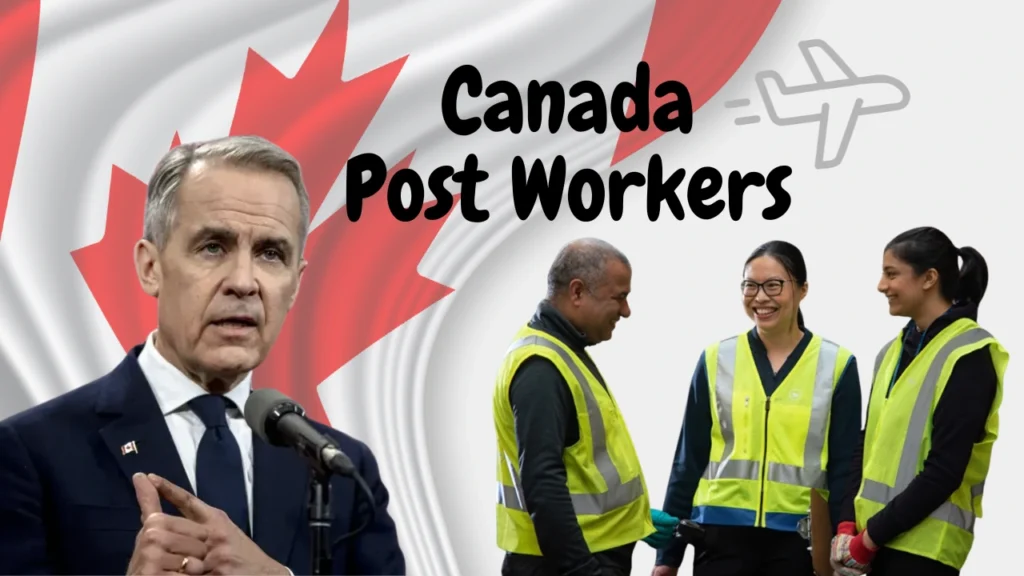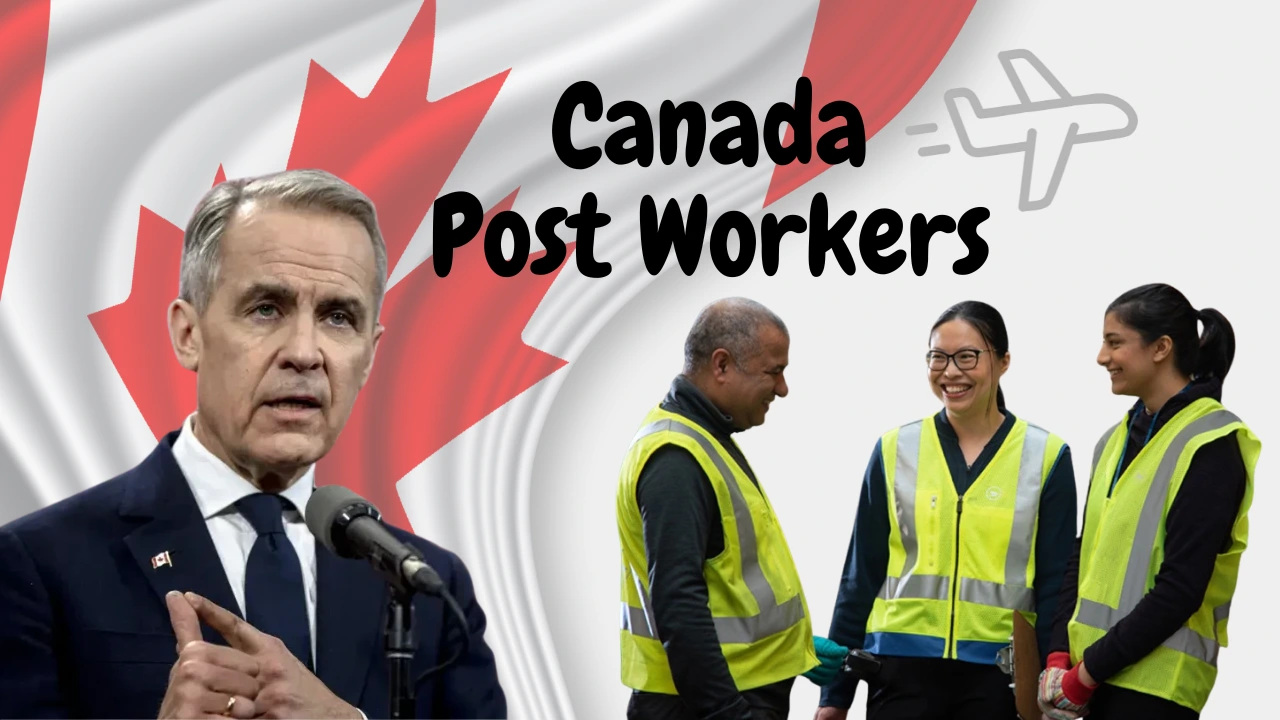Canada Post workers walking off the job after government demands reforms.In late September 2025, Canada Post workers staged a nationwide strike in direct response to sweeping government-mandated reforms aimed at overhauling the national postal system.
The walkout reflects deep tensions between the federal government’s push to modernize an increasingly loss-ridden Crown corporation and workers’ concerns about job security, service standards, and fair collective bargaining. As mail and parcel services ground to a halt, Canadians have been forced to confront what the future of postal delivery might look like and who ultimately bears the cost of transformation.
Canada Post workers walking off the job after government demands reforms- Overview
| Article on | Canada Post workers walking off the job after government demands reforms |
| Reason for Strike | Workers walked off the job after the government announced sweeping reforms to Canada Post. |
| Government Reforms | End most door-to-door delivery, shift to community mailboxes, cut costs, slow delivery, close some post offices. |
| Union Concerns | Job losses, reduced service quality, disproportionate impact on rural/remote communities. |
| Impact | Mail and parcel services halted nationwide, affecting individuals, small businesses, and supply chains. |
| Next Steps | Union demands a “global offer”; possible mediation, arbitration, or phased reforms on the table. |
The Government’s Rationale: Reform or Bust
Over the past decade, Canada Post has faced structural headwinds: declining volumes of letter mail, stiff competition in parcel delivery, rising operational costs, and repeated rounds of financial losses. The government has characterized the current trajectory as unsustainable, warning that continuous bailouts cannot indefinitely prop up a failing enterprise.

Key elements of the proposed reforms include:
- Ending or phasing out door-to-door mail delivery for most households over time, shifting instead to a system of community mailboxes.
- Slowing down delivery schedules, allowing more leeway in transit times.
- Closing or consolidating certain post offices, especially in less dense or rural regions.
- Empowering Canada Post to revisit stamp pricing policies and cost recovery mechanisms.
The Union’s Response and Decision to Strike
The Canadian Union of Postal Workers (CUPW), which represents over 55,000 postal employees, issued an immediate and emphatic rebuke. According to the union, the government’s reform blueprint was presented with little consultation, lacked implementation specifics, and threatened jobs along with delivery quality.
On Thursday, the union declared a nationwide strike, with all CUPW members at Canada Post walking off the job. The union accused the government of launching what it terms an “attack” on both postal workers and the public service mandate of Canada Post.
Impact on Service, Public, and Business
The walkout brought Canada Post’s operations to a standstill. Mail and package deliveries were paused, acceptances of new items were suspended, and delays began mounting across the country. For businesses especially small and rural ones relying on reliable mail and parcel service the interruption threatens supply chains, billing cycles, and customer deliveries.
For individuals, disruptions in bills, legal notices, prescriptions, and other mail services strain daily routines. The public’s perception of the strike is mixed. Some sympathize with the workers’ fear of job losses and service cuts, while others accept the government’s framing that Canada Post must evolve, even at the expense of tradition.
Wider Context: Past Strikes, Union-State Dynamics, and Crown Corporations
To appreciate the present, it helps to look back at Canada Post’s labor history and the broader tensions inherent in Crown corporation reforms.
Previous Strikes and Precedents
Canada Post is no stranger to labor confrontations. In late 2024, a prolonged strike driven by disputes over wages, job security, benefits, and weekend delivery expansions forced government intervention. The Canada Industrial Relations Board (CIRB) eventually ordered workers back to their posts under an extended collective agreement.
The Crown Corporation Dilemma
Canada Post exists in a unique space: a public service with commercial pressures. It must balance universal service obligations with financial viability without becoming a perpetual drain on taxpayer funds. Reform efforts must tread carefully to preserve service equity while reducing inefficiencies.
Labor Relations Under Pressure
This strike also speaks to the evolving nature of labor relations in the 21st century. Governments increasingly demand flexibility, cost controls, and performance metrics from public enterprises, while unions resist changes perceived as unilateral or threatening to worker rights. The clash underscores the risk of derailed negotiations when one side pushes structural reform without sufficient buy-in from the other.
Final Thoughts
The walkout by Canada Post workers in September 2025 is more than a labor dispute—it’s a test of whether a foundational public service in Canada can be transformed in the digital age without leaving workers and communities behind. The government argues that reforms are essential to ensure long-term viability; the union insists that without careful safeguards, those reforms mean real human and social costs.
FAQs for Canada Post workers walking off the job after government demands reforms
Why are Canada Post workers on strike?
They walked off after the government announced reforms that unions say threaten jobs and service quality.
What reforms is the government pushing?
Ending most door-to-door delivery, slower mail schedules, post office closures, and cost-cutting measures.
How does this affect the public?
Mail and parcel deliveries are halted, causing delays for bills, prescriptions, and business shipments.
What happens next?
Possible negotiations, mediation, or government intervention to resolve the standoff.
